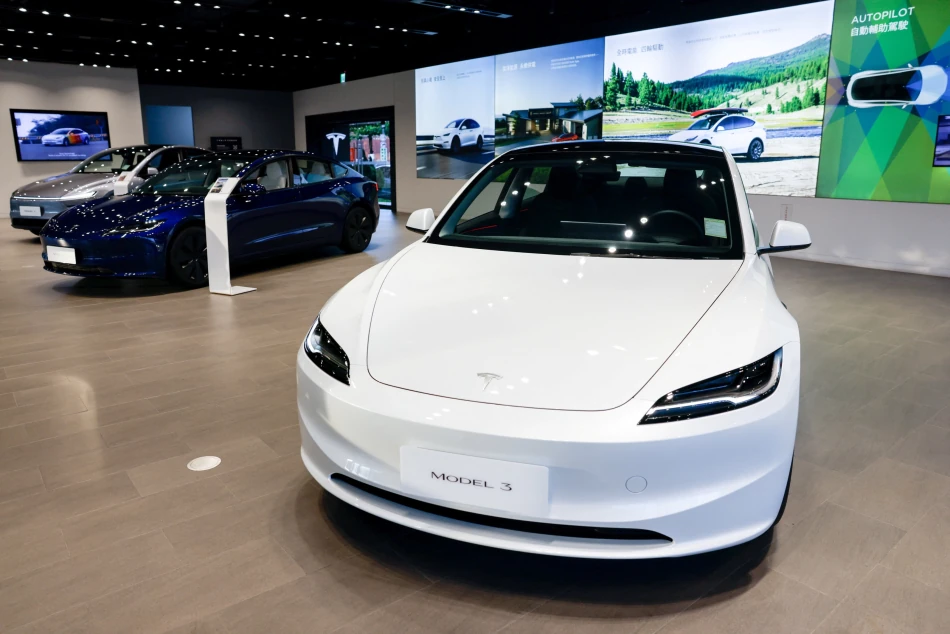
Tesla Fined $243 Million in US Over Fatal Accident
Tesla Hit with $243 Million Verdict in Rare Autopilot Death Case
A Florida jury has delivered a crushing $243 million verdict against Tesla in a wrongful death lawsuit stemming from a fatal 2019 crash involving the company's Model S equipped with Autopilot technology. The landmark ruling represents one of the most significant legal defeats for Elon Musk's electric vehicle giant in autonomous driving litigation and could signal a turning point in how courts view manufacturer liability for self-driving car accidents.
The Fatal Crash That Changed Everything
The case centered on the death of Nayalep Benavides Leon, whose estate, along with former boyfriend Dillon Angulo, sued Tesla after a Model S crashed while using the company's Autopilot system. A federal jury in Miami awarded $129 million in compensatory damages and an additional $200 million in punitive damages—a clear signal that jurors found Tesla's conduct particularly egregious.
Notably, the jury assigned only 33% of the blame to Tesla, translating to approximately $42.6 million in actual liability for the automaker. The remaining 67% of responsibility fell on driver George McGee, who wasn't named as a defendant in the case. This split verdict suggests jurors believed both the technology and human error contributed to the tragedy.
A Rare Legal Victory Against Tesla's Autopilot
Tesla has historically maintained a strong defense record in Autopilot-related litigation, often successfully arguing that driver inattention or misuse of the technology caused accidents. The company's legal strategy typically emphasizes that Autopilot is a driver assistance system, not fully autonomous technology, requiring constant human supervision.
This verdict breaks that pattern and could embolden other plaintiffs' attorneys to pursue similar cases. Legal experts suggest the substantial punitive damage award indicates the jury found evidence of Tesla's willful misconduct or gross negligence in developing or marketing its Autopilot system.
Market Impact and Investor Concerns
Tesla shares fell 1.8% following news of the verdict, adding to the company's challenging year that has seen its stock decline approximately 25% year-to-date. The financial impact extends beyond the immediate payout—the ruling could increase Tesla's insurance costs and legal reserves while potentially slowing adoption of its autonomous driving features.
More concerning for investors may be the timing. Tesla recently unveiled ambitious plans for a robotaxi service built on advanced versions of its Full Self-Driving software. A major legal defeat questioning the safety of current Autopilot technology could complicate regulatory approval and public acceptance of fully autonomous vehicles.
The Broader Autonomous Vehicle Landscape
Tesla's legal troubles contrast sharply with competitors like Waymo and Cruise, which have faced their own regulatory challenges but generally avoided major wrongful death verdicts. The difference may lie in approach: while Tesla deploys semi-autonomous features to millions of consumer vehicles, other companies have focused on limited deployments with extensive safety protocols.
This verdict could influence how regulators approach autonomous vehicle oversight. The National Highway Traffic Safety Administration has already increased scrutiny of Tesla's Autopilot system, investigating multiple crashes and requiring enhanced safety reporting.
What This Means for Tesla's Future
The $243 million verdict, while significant, represents less than 0.3% of Tesla's annual revenue and is unlikely to threaten the company's financial stability. However, the precedent it sets could prove far more costly if it encourages additional lawsuits or prompts regulatory action that limits Autopilot deployment.
Tesla will almost certainly appeal the verdict, a process that could take years. Meanwhile, the company faces the delicate balance of advancing its autonomous driving ambitions while addressing growing legal and safety concerns that could undermine public trust in the technology that Musk has called central to Tesla's future value proposition.
Most Viewed News

 Sara Khaled
Sara Khaled






